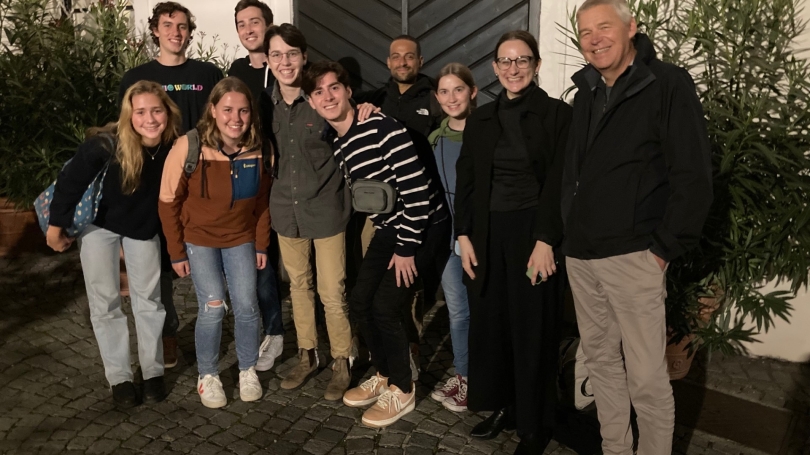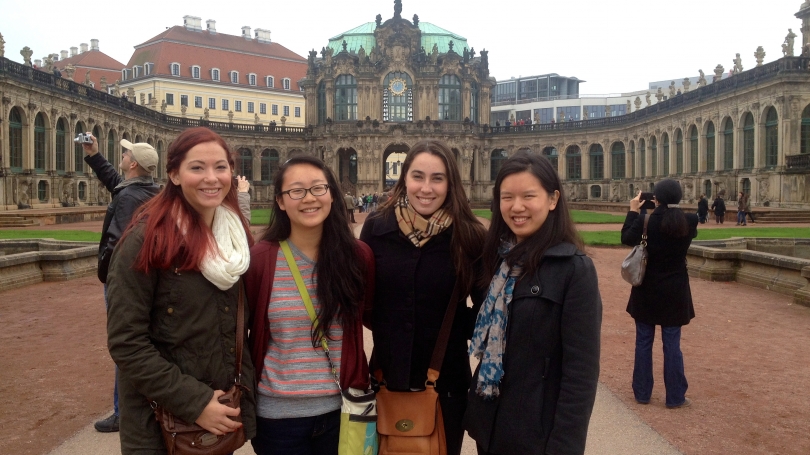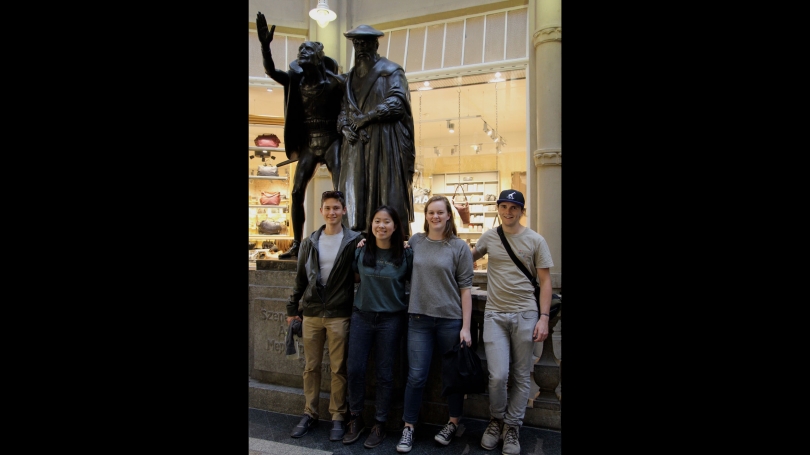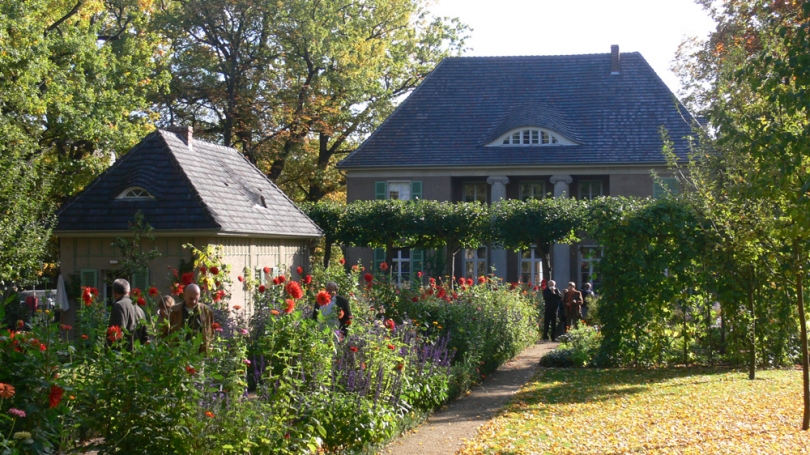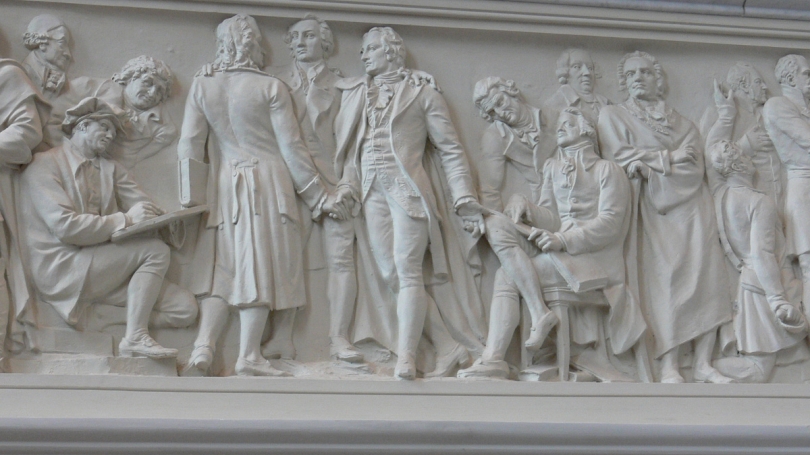German 10: Advanced Intermediate German is available as an LSA+ option and only taken by students who have completed German 3 on campus but not yet taken a 10 level class. Taught by Gregor Hens.
German 29: Contemporary Germany and Berlin is only taken by FSP students. Taught by Veronika Springmann. Introduction to contemporary German culture, identity and everyday life through close analysis of literary, filmic, architectural, political and other texts. Assignments should develop skills in analyzing construction of identity and expressing sophisticated ideas in written and spoken German. Carries major or minor credit.
German 30: Studies in German History is jointly taken by LSA+ and FSP students at differentiated levels of instruction. Taught by Keith R. Allen. More than any other German city, Berlin encapsulates Germany's complex past. From the Brandenburg Gate to the Olympic Stadium and from the Wannsee to the Alexanderplatz, the capital evokes memories of Wilhelminian pomp, Nazi rule, World War II, the Cold War, and Re-Unification. This course addresses significant aspects of postwar German history and cultural memory. In-depth studies of important developments will be complemented by visits to museums, historical sites and archives. Carries major or minor credit.
German 31: Studies in German Theater Studies in German History is jointly taken by LSA+ and FSP students at differentiated levels of instruction. Taught by the Dartmouth faculty member in residence. Berlin is one of the culturally most vibrant cities in Europe. There are over a hundred theaters and several opera houses with performances that range from classical drama to vaudeville and from musicals to serious opera. For this FSP literature course, students will read, attend, discuss, and write about the plays they see live in various stage productions. The repertory varies from year to year. The primary focus is on theater, but the course may also include prose texts and films. Carries major or minor credit.
Apply online at Off-Campus Programs.
